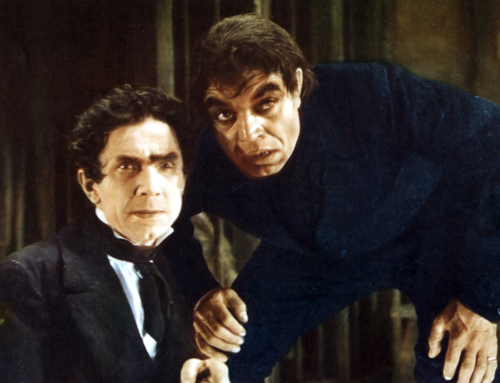In the poetry of Jeremiah Webster’s After So Many Fires, we have found Flannery O’Connor’s Protestant counterpart. Though an Anglican, Dr. Webster weaves his words on the same theological loom as O’Connor, seeing in the world’s maddening duality a divine coherence…
After So Many Fires by Jeremiah Webster (65 pages, Anchor and Plume, 2017)
 I first encountered Jeremiah Webster’s After So Many Fires on an excruciating Saturday road trip from Virginia to Western Pennsylvania, a place that America has long forgotten to remember. The rack-like seats of my 2000 Toyota Corolla threw my back into serpentine spasms. A hailstorm somehow made Pennsylvania’s purgatorial greyness even greyer. And when I arrived, my host put me up on an attic futon that could get secrets out of a green beret.
I first encountered Jeremiah Webster’s After So Many Fires on an excruciating Saturday road trip from Virginia to Western Pennsylvania, a place that America has long forgotten to remember. The rack-like seats of my 2000 Toyota Corolla threw my back into serpentine spasms. A hailstorm somehow made Pennsylvania’s purgatorial greyness even greyer. And when I arrived, my host put me up on an attic futon that could get secrets out of a green beret.
I slipped into my flag-thin sleeping bag, with my aching back and my searing eye, I decided to crack open a book recently given to me, After So Many Fires. “It’s thin enough,” I thought to myself. “Just about as much as I can handle after so many hours of driving.”
It began “There is the news: / imminent, decisive, news/ of green opulence as the world falls apart.” I did not like where this was going.
Many of us have the great privilege of being able to avoid wrestling with brokenness. At the end of a long day, should we prefer not to stare into evil and rot and suffering, we can just turn off the news. We can justify our self-insulation, reminding ourselves of that other time I gazed on the ugly mug of the world, or of the pain I personally have endured. The poem kept on. “There is the torching: / novels, martyrs, torching / or twenty-one centuries as the world falls apart. / I study my books / as the world falls apart.” Dr. Webster was drawing my attention precisely where I did not want to look. “I don’t have the energy anyway,” I thought, “Maybe I’ll return to this tomorrow.”
It’s a good thing, though, that I kept reading, that I did not let my cranky soul pull me off the page. Dr. Webster ends the poem with “I sing second life / and the world falls apart.” At those words I caught a sliver of light, the resolution in the discord, the grace behind the machine. It was a turn of hope, but not just in the poem—in my little corner of the world. Without Dr. Webster, I certainly would have missed it that evening. Maybe his name, Jeremiah, is not so much of an accident. After all, the prophet can take us with words to places our own thoughts cannot.
After So Many Fires was a wholly unwelcome and healingly successful invitation to think about the interplay of light and darkness, now and not-yet. We live in a broken place that—precisely in its brokenness—calls forward to an eerily familiar future, a world made new. Call it the New Jerusalem or the Second Eden or the City of God; we can all feel it beckoning and occasionally harassing us from behind and within the shattered visage of this present age. It is a kind of perichoresis.
In “Right Whale Luminary,” Dr. Webster reckons with poems of Emily Dickinson and the ruthlessly harvested whale oil by which they were written: “why fear should burden me / when I consider how many leviathans / illuminated / the poems / Emily Dickinson / wrote at night.”
In “Other Space,” he presses our nose to the glass of an aquarium, and after a moment of childlike joy reminds us that our very childlikeness longs for “assurances I cannot give, the reason / we reside in this space / and not the other.”
In “Faith,” he brings us to a stillborn, riverbank graveside, a funeral in a ring box. In that worst of imaginable moments—the death of a child—Dr. Webster can still see light through the crack. “What is her name? / I ask above the current. Faith, your / Mother says, It was always a girl.”
Dr. Webster simply has an eye for the battering of the heart, a battering that would be “dialectical” if it rose out of the back-and-forth of opposing voices. But what we do not have here is a neat Hegelian choreography in which thesis meets antithesis. No—in these poems incommensurable realities apprehend us simultaneously. The brokenness of the world reveals the righteousness of God, and the righteousness of God breaks the world. Dr. Webster gives us a vision of this world—with all of its tragedy and frustration—as a locus of divine revelation. This is sacramental in its best and widest sense. This was a vision of the world that so many of us first learned in Flannery O’Connor.
O’Connor was one of a handful of devoutly Catholic artists who took up the task of deciphering just what religious faith meant for the (good) artist. In a lecture she prepared for Notre Dame on April 16, 1957, she says: “The Catholic sacramental view of life is one that sustains and supports at every turn the vision that the storyteller must have if he is going to write fiction of any depth.”[1] That “Catholic sacramental view” embodies on what she calls elsewhere “the central Christian mystery: that [the world] has for all of its horror, been found by God to be worth dying for.”[2] On the table here is the Eucharist: the Catholic, sacramental embodiment of the central Christian mystery.
This Eucharistic, sacramental point of view bleeds through every scene of O’Connor’s stories. I hesitate to say “you can just feel it” because it sounds so glib. But O’Connor herself sights Henry James, who believed “the morality of a piece of fiction depended on the amount of ‘felt life’ that was in it.” There is a pulse in her fiction that apprehends her readers. It is that very sacramental outlook, that vision of a world loved by God despite its horror. Of course, the love of God finds its twisted climax in the cross of Christ, and Catholics finds the cross daily in the Eucharist.
It is in the Eucharist the two dual realities meet in a moment: the death of the Christ for the love of the world and the miraculous transformation of the elements into His real presence. The love of God is seen in the battered body of the crucified Jesus, in just the same way that the bread and wine on the altar truly become the body and blood of the Son of God. The body of Jesus, on the cross and in the sacrament, manages to hold massive dualities together, and in so doing, redeems us into a state of grace.
One can sense a kind of battering here as well. Quite suddenly, bread becomes body; wine becomes blood. The elements become God’s real presence. The transition is unbending and unforgiving in its own way. There is something nearly violent about it. It colors everything O’Connor writes, the central mystery, the Catholic sacramental view.
O’Connor has found her Protestant counterpart. Though an Anglican and a poet, Dr. Webster weaves his words on the same theological loom. He sees in the world’s maddening duality, a divine coherence. He can hold together the whale oil and the poem, the scapegoat and the sacrifice, entropy and growth. His works feels no less abrasive than O’Connor’s, but it also feels no less transcendent. Dr. Webster sounds almost as though he has consciously adopted that Catholic point of view that O’Connor believed to be so particular to her own ilk. He sounds like a transubstantial Protestant—what could be more disjunctive and simultaneously gracious than that?
I am not sure if, that night, I ever let down my first frustration at Dr. Webster’s first words. But lying in that attic, comfortable as a flagellant, I began to wonder at least if this little moment of anger and angst was any less of a grace than the sermon I was supposed to preach when I woke in the morning.
The Imaginative Conservative applies the principle of appreciation to the discussion of culture and politics—we approach dialogue with magnanimity rather than with mere civility. Will you help us remain a refreshing oasis in the increasingly contentious arena of modern discourse? Please consider donating now.
[1] Flannery O’Connor, Mystery & Manners, 152.
[2] Ibid., 146.
Editor’s note: The featured image is a detail from the painting “Fall of the Rebel Angels” by Pieter Bruegel.







Leave A Comment